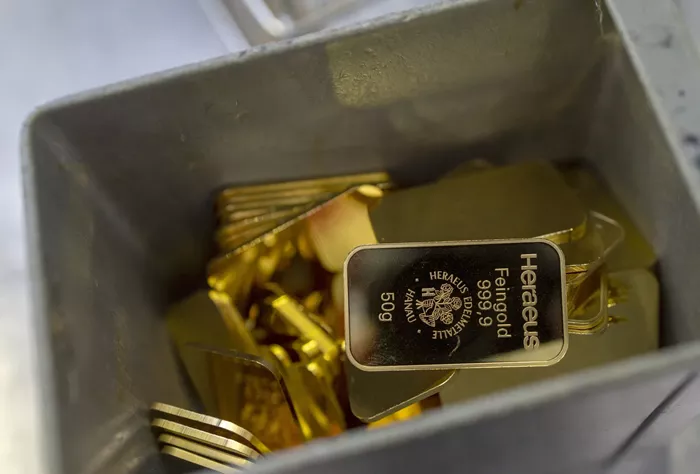Gold has been a valuable asset for centuries. Its price is influenced by various factors, including economic conditions, geopolitical events, and market demand. As of February 5, 2025, gold prices have reached record highs. This article provides an overview of the current gold price per gram and explores the factors contributing to its recent surge.
Current Gold Price per Gram
As of February 5, 2025, the price of gold has reached unprecedented levels. Spot gold rose 0.5% to $2,855.32 per ounce, after hitting a record high of $2,858.12 earlier in the session. This translates to approximately $91.80 per gram.
Factors Influencing the Surge in Gold Prices
Several key factors have contributed to the recent increase in gold prices:
Geopolitical Tensions
Recent trade tensions between the United States and China have heightened economic uncertainties. China imposed tariffs on U.S. imports in response to new U.S. duties on Chinese goods. These actions have driven investors toward gold as a safe-haven asset.
Central Bank Purchases
Central banks have continued their gold-buying streak for the 15th consecutive year. In 2024, they purchased 1,044.6 metric tons of gold, slightly down from 1,050.8 metric tons in 2023. This sustained demand has supported higher gold prices.
Inflation Concerns
The imposition of tariffs and other trade barriers has raised concerns about potential inflation. Investors often turn to gold as a hedge against inflation, increasing its demand and price.
Market Speculation
Analysts suggest that if trade tensions escalate further, gold prices might reach $3,000 per ounce. Such speculation fuels investor interest, contributing to the current price surge.
Historical Context
To understand the significance of the current gold price, it’s helpful to look at its historical performance. In January 2025, gold prices ranged from $2,623.91 to $2,771.70 per ounce, with an average of $2,696.07. The current price of over $2,855 per ounce represents a significant increase from these levels.
Global Impact
The rise in gold prices has global implications. For instance, in India, a major consumer of gold, demand is expected to moderate in 2025 due to soaring prices, which have reached a record high of 84,399 rupees per 10 grams. This decrease in demand is primarily in the jewelry sector, although investment demand continues to rise.
Future Outlook
Looking ahead, several factors could influence gold prices:
Monetary Policies: Changes in interest rates by central banks, especially the U.S. Federal Reserve, can impact gold prices.
Economic Indicators: Data on employment, GDP growth, and inflation will play a role in shaping investor sentiment toward gold.
Geopolitical Events: Ongoing trade negotiations and geopolitical tensions will continue to affect gold’s appeal as a safe-haven asset.
Analysts from Goldman Sachs have raised their gold price forecast to $2,900 per ounce for early 2025, citing factors such as lower global interest rates and increased central bank demand.
Conclusion
As of February 5, 2025, gold prices have reached record highs, driven by a combination of geopolitical tensions, central bank purchases, and inflation concerns. Investors are closely monitoring these factors to make informed decisions in the evolving economic landscape.
Related topics:
- What is the Value of 18K Gold?
- Why Does Gold Price Increase During War?
- What is the Best Price Being Paid for Gold Sovereigns?


